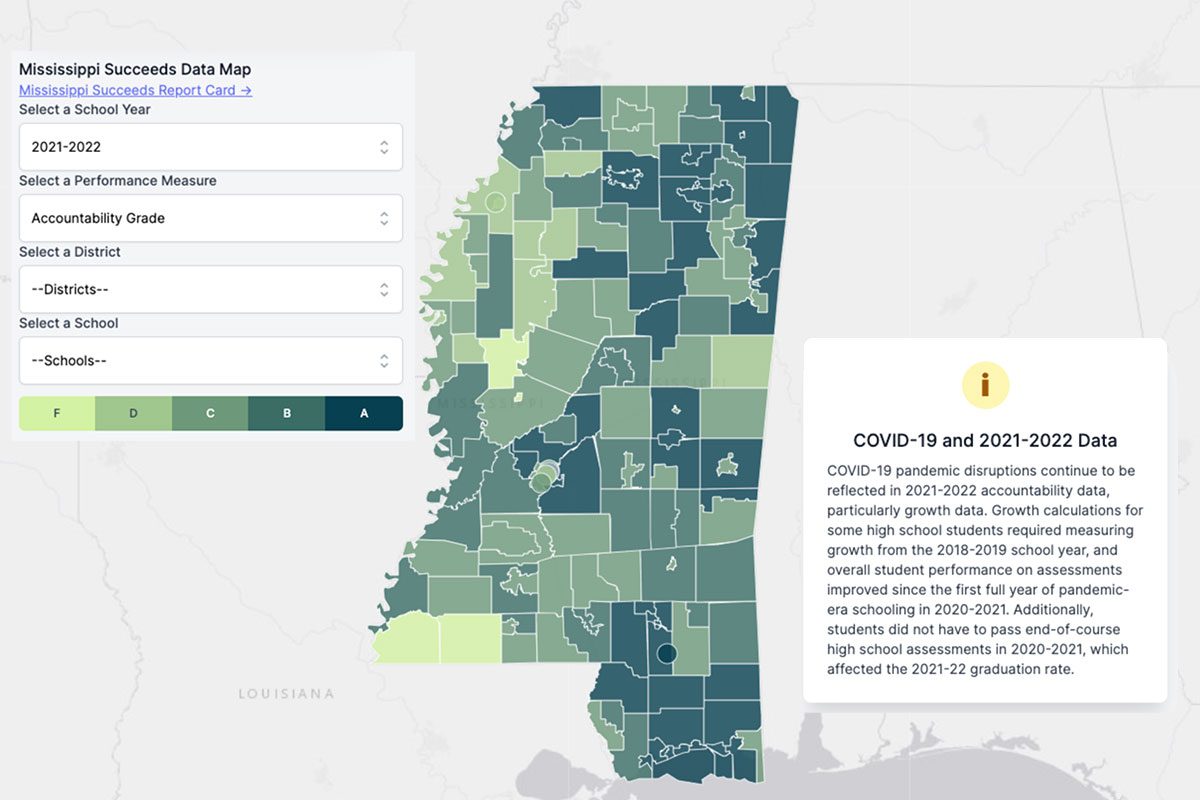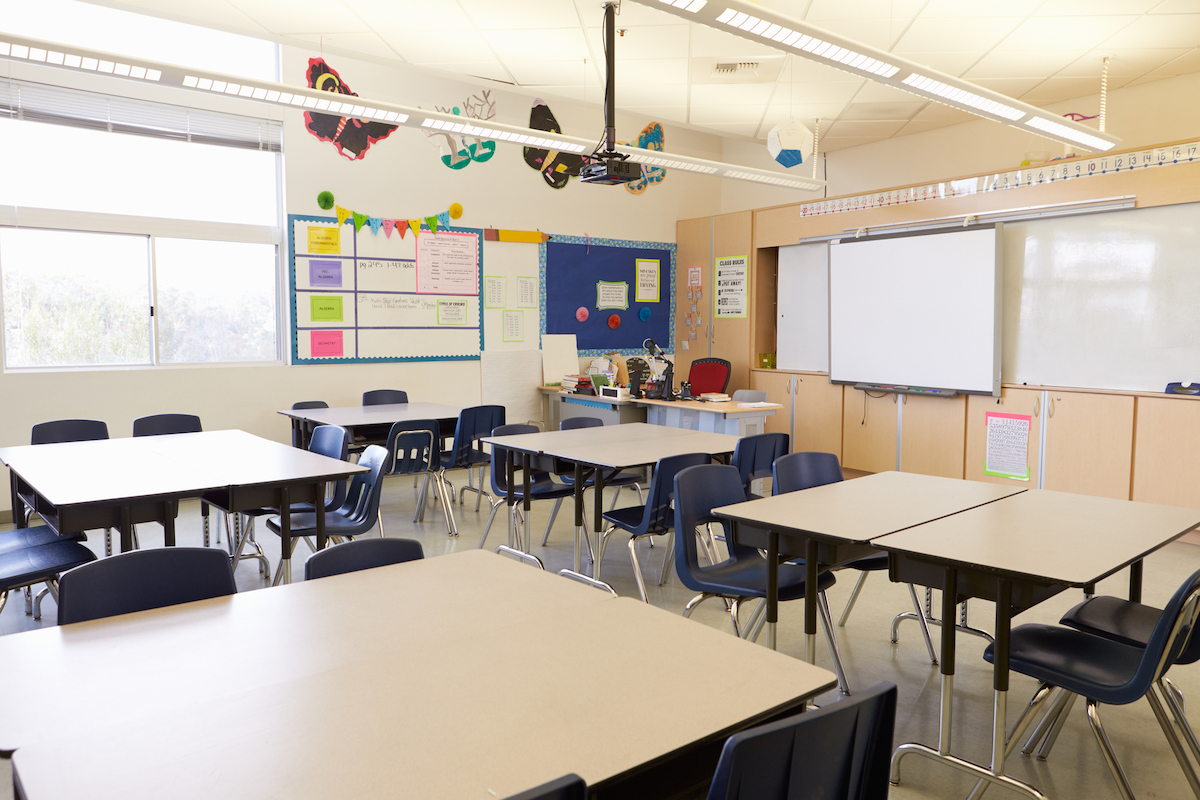The recent release of Mississippi school and district accountability grades generated praise for school districts across the state, as many of them received improved grades for the first time. Teachers, students and administrators in each of these districts have worked diligently to overcome the adverse effects of the COVID-19 pandemic on education, and for that, they should all be lauded.
However, a closer look at student achievement in Mississippi reveals some familiar disturbing truths. While most schools saw their accountability grades improve, the number of students proficient in key subject areas is still lagging.
Accountability in schools in Mississippi weighs heavily on improvement in academic performance. Test scores for the 2020-2021 school year dropped significantly for nearly every school district due to the pandemic. For districts already ranked at the bottom, their scores plummeted even further. Once students fully returned to the classroom, they were able to re-adjust to traditional learning and instruction, and test scores bounced back.
However, in many instances, districts that showed improved academic outcomes have student populations where half or more of their students are not proficient in key subjects such as English or math. In fact, the number of students scoring at the lowest achievement levels actually increased during the 2021-2022 school year.

This is cause for concern, as students who are not proficient in key subject areas may likely be ill-equipped to excel at the next grade level or beyond the classroom. Of course, not all students are faring equally. Black students make up the majority of Mississippi’s public-school population with more than 200,000 students. Yet, only 25% of this majority scored proficient, and only 6% scored advanced in math for the 2021-2022 school year. Additionally, only 22% of the majority scored proficient, and only 6% scored advanced in English. These scores do not differ much from what they were before the pandemic.
Fully Fund Mississippi Adequate Education Program
So, if the majority of public-school students in Mississippi are not proficient in these critical subject areas, how will this potentially impact Mississippi’s college enrollment? Or its future workforce? This educational reality should concern every Mississippian, as our economic vitality as a state depends on it. Having a workforce equipped to engage in the job market and contribute to our economy requires our students to possess the level of knowledge and skills necessary to do so.
The long-term impact of the pandemic on Mississippi students remains to be seen. The National Assessment of Educational Progress shows that students have lost nearly two decades of learning in reading and math due to the pandemic, with average long-term math scores falling for the first time ever and the largest drop in reading since 1990.
This data is alarming and indicates that it will take significant time for students to truly recover. Mississippi’s students are no exception.
The Mississippi Center for Justice has spent the past several months engaging with parents in school districts around the state as part of a research study to discover how the pandemic has affected education for families. Their lived experiences tell the true story of how education in Mississippi is still bereft of adequate resources for all its students. So while it is encouraging to see signs of progress across Mississippi schools after the turbulent years of the pandemic, the stark reality is that students in many school districts will continue to struggle.
The pandemic proved that educators, students, and administrators are nimble and adaptable in the face of challenges. Likewise, school districts proved they are resilient, that despite the upending of learning and teaching during the pandemic they have remained committed to educating Mississippi’s children. The coming school years will be critical to understanding and overcoming the negative effects of the pandemic on student learning.
In order to see stronger gains in both growth and proficiency for all of our students, our schools need to be equipped to address the effects of the pandemic over the long haul.

Fully funding the Mississippi Adequate Education Program can help our students receive the additional long-term support they will need to recover once the federal COVID-19 funding ends. MAEP is a formula set by state law that determines the amount of funding needed for each public-school district to meet the Mississippi Department of Education’s academic standards. For this school year, Mississippi schools are a whopping $279.3 million short of what our state law says our teachers and children need in order to be successful.
Funding owed to school districts could go toward reducing class sizes and allowing teachers more time to work with each student, hire teachers for advanced STEM classes, expand school programming and more. Mississippi lawmakers should close this gap in funding in order to help students regain their academic footing and improve long-term student achievement for a more equitable, sustainable education system.
This MFP Voices essay does not necessarily represent the views of the Mississippi Free Press, its staff or board members. To submit an essay for the MFP Voices section, send up to 1,200 words and sources fact-checking the included information to azia@mississippifreepress.org. We welcome a wide variety of viewpoints.






